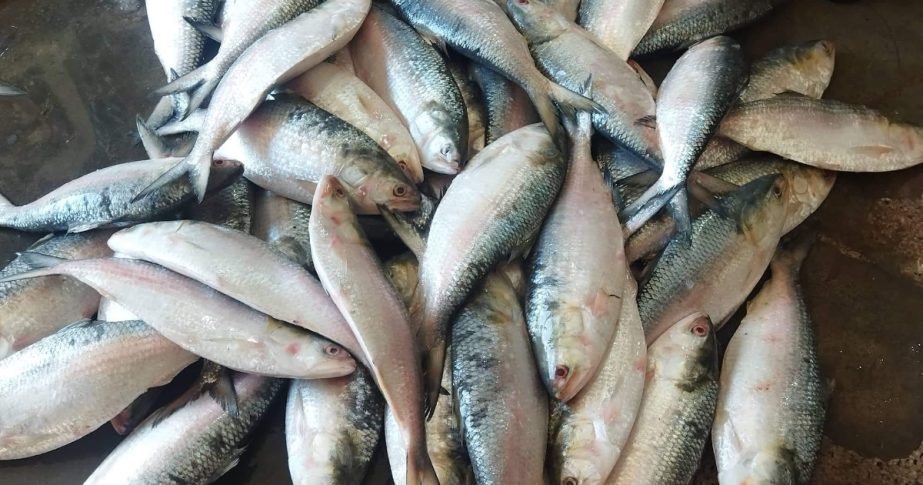
UNB, Khulna :
When it comes to hilsa, the general rule is that you pay less during the rainy season than in winter.
But this year, even the incessant rains have failed to cool off the prices of the monsoon delicacy, at least in Khulna. In simple words, the gastronome’s delight is no longer within the reach of the common people.
Officials attribute the sky high prices of hilsa to spiralling fuel rates and hoarding by unscrupulous fish traders.
“The fishermen are reeling under the impact of spiralling prices of diesel that they need to run their trawlers. Also, those hoarding the fish in refrigerators are responsible for pushing up the prices of ilish,” Joydeb Pal, the district fisheries officer, told UNB.
Agreed fishers. “The trawlers we use for fishing, and the trucks and mini trucks used for transportation are all diesel driven. So, the fuel price hike has directly impacted us,” said Belayet Mir a fisherman from Barguna.
Some fish traders, however, claimed that the prices of hilsa have gone up in the wake of the government giving 49 business units permission to export 2,400 metric tonnes of hilsa to India for the upcoming Durga puja.
Sheikh Saidul Islam, a fish trader, said, “Due to the government’s multipurpose plan, the production of hilsa has increased. But its prices vary as per the market demand.”
A recent check by UNB at different markets of Khulna city—Gallamari Bazar, Sandhya Bazar, New Market Bazar, Rupsha Bazar, Natun Bazar, Boyra Bazar and Khalishpur Bazar—revealed the reality.
At Sandhya market, for instance, one kg of hilsa was being sold at Tk 1,200-1,300 against the usual price of Tk 600-800.
Afzal, a retail trader at Gallamari Bazar, said that “most people are just asking the prices but refraining from buying the fish.”
Ishak Member, a trader at Rupsha fish market, said, “Several hundred traders are involved in the hilsa business. We all urge the authorities concerned to take steps for the growth of the business.”
Hilsa has the highest contribution in the country’s fish production as the single fish species.
Every year, the government imposes a two-month ban on catching, selling, hoarding and transporting hilsa to boost its production.

